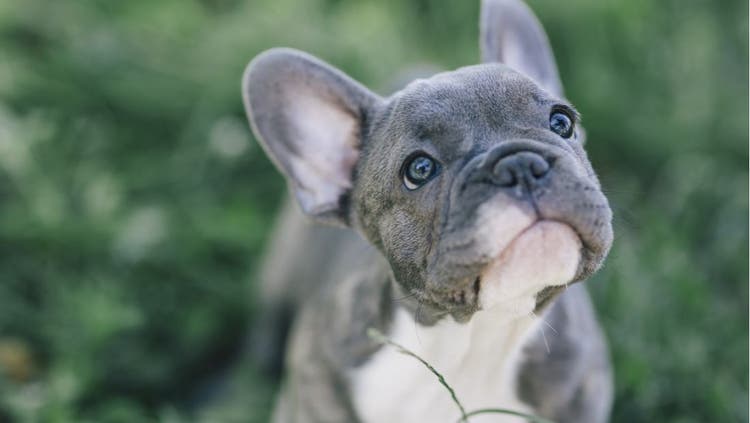
Breathing Problems in French Bulldogs
In an effort to provide French Bulldogs with human characteristics, they were deliberately bred to have smaller muzzles, which has led to sight and breathing-related health issues.
Respiratory issues can range from moderate to severe, and many owners become concerned when they hear their French Bulldog panting heavily. These issues could be caused by the physical makeup of the dog’s airway, which may be benign, or it could be something more severe, like brachycephalic airway syndrome.
If you are considering the French Bulldog breed, or are already a proud French bulldog parent, you need to familiarize yourself with their breathing problems and know what to avoid in order to keep your pet healthy.
Brachycephalic Airway Syndrome
Flat-faced dogs are referred to as “brachycephalic,” which is an upper-airway abnormality linked to a variety of health issues, including breathing problems. These dogs have short facial bones, but the same amount of facial tissue as a dog with a normal-sized muzzle, which leads to excess tissue inside the dog’s mouth. This tissue is capable of blocking a dog’s airway so severely that surgery is required to save the dog from respiratory distress.
Dogs with Brachycephalic syndrome also have narrow nostrils, which restricts the amount of air they can draw in. If a dog can’t oxygenate properly, they cannot effectively cool down, which may lead to overheating in warmer weather or after physical activity. Symptoms also include wheezing, open-mouth breathing, snoring, and regurgitation.
If your dog is suffering from any of these symptoms, you should speak to your veterinarian immediately. Though it can be difficult to intubate a French Bulldog (due to their physical attributes), there may be surgical and medical treatments to help manage the condition. Anti-inflammatory medications or corticosteroids can be prescribed, as well as oxygen therapy, which has short-term benefits for dogs in a state of respiratory distress.
The Best Ways to Avoid French Bulldog Breathing Problems
As an owner of a French Bulldog, you should be prepared for the financial and emotional cost of dealing with a breed that has the potential for health issues.
Here are three tips to help keep your pup happy and healthy:
Do Not Overexert Your Dog
French Bulldogs are incapable of inhaling enough oxygen for vigorous workouts. Stick to a short 10 to 15-minute walk each day, keeping your dog’s demeanor in mind, and carrying them home if they become fatigued.
Moderate Activity Based on Age
Age is also a factor when it comes to physical activity and bulldog breathing problems. As a general rule, walk your French Bulldog puppy about two minutes for every month of age, meaning that a three-month-old pup would need to walk for about six minutes. During each walk, monitor your puppy for signs of fatigue and end the walk if they seem too tired to continue.
Keep Your Dog Out of the Heat
Brachycephalic dogs are prone to heatstroke and have trouble regulating their body temperature. Walks in the morning and evening are best, since mid-day heat and humidity can wear out an animal struggling to breathe through a short nose and compromised airway.
To learn more about owning a French bulldog, read our article Owning a French Bulldog: What You Should Know. If you’d like to read more about the breed itself, go to Choosing a French Bulldog.